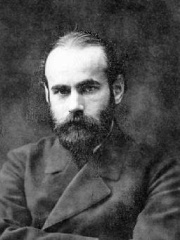


The Most Famous
PSYCHOLOGISTS from Czechia
This page contains a list of the greatest Czech Psychologists. The pantheon dataset contains 235 Psychologists, 3 of which were born in Czechia. This makes Czechia the birth place of the 12th most number of Psychologists behind Netherlands, and Hungary.
Top 3
The following people are considered by Pantheon to be the most legendary Czech Psychologists of all time. This list of famous Czech Psychologists is sorted by HPI (Historical Popularity Index), a metric that aggregates information on a biography's online popularity.

1. Sigmund Freud (1856 - 1939)
With an HPI of 91.09, Sigmund Freud is the most famous Czech Psychologist. His biography has been translated into 188 different languages on wikipedia.
Sigmund Freud (born Sigismund Schlomo Freud; 6 May 1856 – 23 September 1939) was an Austrian neurologist and the founder of psychoanalysis, a clinical method for evaluating and treating pathologies seen as originating from conflicts in the psyche, through dialogue between patient and psychoanalyst, and the distinctive theory of mind and human agency derived from it. Freud was born to Galician Jewish parents in the Moravian town of Freiberg, in the Austrian Empire. He qualified as a doctor of medicine in 1881 at the University of Vienna. Upon completing his habilitation in 1885, he was appointed a docent in neuropathology and became an affiliated professor in 1902. Freud lived and worked in Vienna, having set up his clinical practice there in 1886. Following the German annexation of Austria in March 1938, Freud left Austria to escape Nazi persecution. He died in exile in the United Kingdom in September 1939. In founding psychoanalysis, Freud developed therapeutic techniques such as the use of free association, and he established the central role of transference in the analytic process. Freud's redefinition of sexuality to include its infantile forms led him to formulate the Oedipus complex as the central tenet of psychoanalytical theory. His analysis of dreams as wish fulfillments provided him with models for the clinical analysis of symptom formation and the underlying mechanisms of repression. On this basis, Freud elaborated his theory of the unconscious and went on to develop a model of psychic structure comprising id, ego, and superego. Freud postulated the existence of libido, sexualised energy with which mental processes and structures are invested and that generates erotic attachments and a death drive, the source of compulsive repetition, hate, aggression, and neurotic guilt. In his later work, Freud developed a wide-ranging interpretation and critique of religion and culture. Though in overall decline as a diagnostic and clinical practice, psychoanalysis remains influential within psychology, psychiatry, psychotherapy, and across the humanities. It thus continues to generate extensive and highly contested debate concerning its therapeutic efficacy, its scientific status, and whether it advances or hinders the feminist cause. Nonetheless, Freud's work has suffused contemporary Western thought and popular culture. W. H. Auden's 1940 poetic tribute to Freud describes him as having created "a whole climate of opinion / under whom we conduct our different lives".

2. Max Wertheimer (1880 - 1943)
With an HPI of 70.56, Max Wertheimer is the 2nd most famous Czech Psychologist. His biography has been translated into 37 different languages.
Max Wertheimer (German: [ˈvɛʁthaɪ̯mɐ]; April 15, 1880 – October 12, 1943) was a psychologist who was one of the three founders of Gestalt psychology, along with Kurt Koffka and Wolfgang Köhler. He is known for his book Productive Thinking and for conceiving the phi phenomenon as part of his work in Gestalt psychology. Wertheimer became interested in psychology and studied under Carl Stumpf at the University of Berlin. Wertheimer then went on to obtain his PhD in 1904 under Oswald Külpe, at the University of Würzburg and then began his intellectual career teaching at the Institute for Social Research at Frankfurt University. For a short time, he left Frankfurt to work at the Berlin Psychological Institute, but returned in 1929 as a full professor. Wertheimer eventually joined the faculty of The New School in New York, a position he held until his death. One of Wertheimer's postdoc researchers was the American psychologist Abraham Maslow who greatly admired Wertheimer.

3. Stanislav Grof (b. 1931)
With an HPI of 67.75, Stanislav Grof is the 3rd most famous Czech Psychologist. His biography has been translated into 27 different languages.
Stanislav Grof (born July 1, 1931) is a Czech-born American psychiatrist. Grof is one of the principal developers of transpersonal psychology and research into the use of non-ordinary states of consciousness for purposes of psychological healing, deep self-exploration, and obtaining growth and insights into the human psyche.
People
Pantheon has 3 people classified as Czech psychologists born between 1856 and 1931. Of these 3, 1 (33.33%) of them are still alive today. The most famous living Czech psychologists include Stanislav Grof. The most famous deceased Czech psychologists include Sigmund Freud, and Max Wertheimer.

